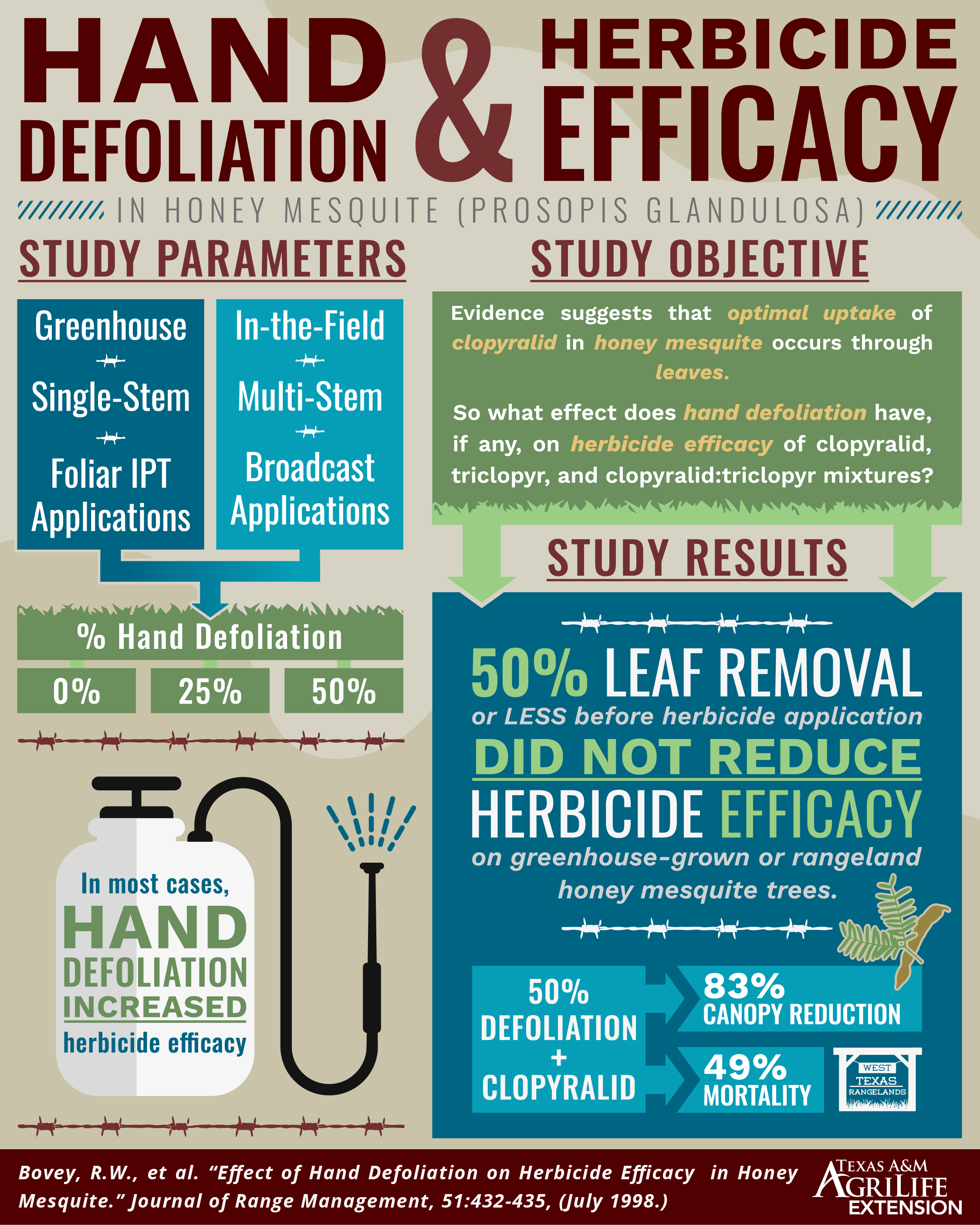 Grasshoppers are in full force this year! Has that delayed your foliar herbicide applications on mesquite? If herbicide application success is dependent on optimal uptake through healthy, mature leaves, then what effect can varying defoliation rates have on herbicide efficacy of clopyralid, triclopyr, and clopyralid+triclopyr applications?
Grasshoppers are in full force this year! Has that delayed your foliar herbicide applications on mesquite? If herbicide application success is dependent on optimal uptake through healthy, mature leaves, then what effect can varying defoliation rates have on herbicide efficacy of clopyralid, triclopyr, and clopyralid+triclopyr applications?
Target plants included single-stem honey mesquite from greenhouse treated with foliar Individual Plant Treatment (IPT) applications and multi-stem honey mesquite on rangeland treated with broadcast applications.
Results showed that 50% of leaf removal or less BEFORE herbicide applications DID NOT REDUCE herbicide efficacy on greenhouse-grown or rangeland honey mesquite trees.
Trees that were defoliated by 50% and treated with clopyralid resulted in 83% canopy reduction and a 49% plant mortality rate.
For more information and the full study, be sure to check it out Effect of Hand Defoliation on Herbicide Efficacy in Honey Mesquite!
Bovey, R. W., Jr., Pace, P. F., Cralle, H. T., Department of Rangeland Ecology and Management, Texas A&M University, College Station, Te.r., 77843-2126, & Department of Soil and Crop Sciences, Texas A&M University, College Station, Tex. 77843-2474. (1998). Effect of hand defoliation on herbicide efficacy in honey mesquite. In J. Range Manage. (Vol. 51, pp. 432–435).